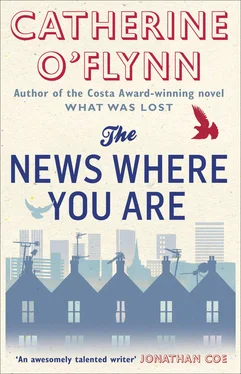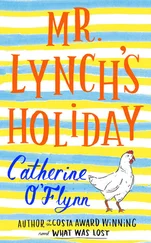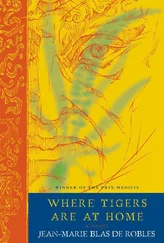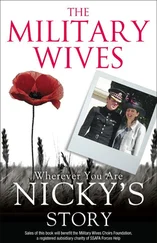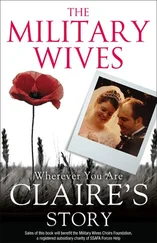He got out of the car now and walked purposefully towards the man he had identified as the owner. He was a fleshy figure, pigeon-chested with no neck, attempting some kind of Miami Vice look that Frank didn’t think suited him or the bitter weather. Frank reached out to shake his hand and as the man turned and recognized him Frank noticed the brief look that crossed his face. A momentary flash of amusement as if Frank had just been the subject of some humorous conversation. It was a look he was used to. After a few introductions, Frank stood up at the ribbon and gave the speech he’d been asked to give — combining an upbeat economic forecast for the area with corny jokes. He gave his best cheese-eating grin as he cut the ribbon and the cameras flashed.
Afterwards he drank tasteless cava and chatted to an investor in the development called Eddy and the generically glamorous woman at his side who was not introduced by name.
‘There seem to be casinos cropping up all over the city now,’ Frank ventured.
‘Yeah, well, there’s only so many tits a city can take,’ said Eddy. ‘Did you know Birmingham has more gentlemen’s clubs per capita than anywhere else in Europe?’
‘Really?’ said Frank.
‘Thing is that women’s bodies are being devalued.’ Frank was momentarily wrong-footed, before Eddy made his meaning clear. ‘Some of the skanks these clubs employ, they cheapen the experience, put the punters off. I run five lap-dancing establishments, but they’re classy. The girls keep themselves nice and spruce-looking. But it’s all too available now. A man should feel special that he has the currency to pay a beautiful woman to dance for him, but there’s nothing special about it now. It’s lost the glamour and the magic. The punters feel sordid.’
Frank had always assumed that was the point.
‘But casinos, Frank, that’s a different game. They have that glamour and magic and they have it in spades. People think of casinos and they think of James Bond, they think of George Clooney and Sharon Stone. They think of all these things and, while they think, they are pouring money on those tables faster than we can bank it. Course, I could’ve done without the recession, but you never know; desperate times sometimes call for desperate measures — like putting it all on red.’
Eddy continued to speak, but Frank drifted off. He looked around distractedly at the faces around him. He wondered how many of them had been in the hospital as children, or had maybe brought their own children there, running every red light in the empty night-time streets. His attention was caught by a figure with a shopping trolley making his way along the pavement towards them. The man was tall, perhaps in his fifties, wearing an anorak covered in badges and a Boyzone baseball cap. He stopped to look at the spectacle before him. After a moment he dragged his trolley up to one of the bunny girls and Frank heard him ask: ‘Is the kiddies coming back, love?’
‘Sorry?’
‘The kiddies. The hospital. Is them opening it again?’
‘The hospital?’ She was speaking loudly as if the man was deaf. ‘Is that what you’re asking? The hospital’s moved now … This isn’t the hospital any more,’ she added slowly.
The man looked at her as if she was simple. ‘I know that, love. I remember it closing. I thought they wuz reopening it like. What’s happening, then? What’s all this in aid of?’
‘It’s a new casino opening today.’
The man frowned at her. ‘A casino? Here? You joking, bab?’ And then he started to laugh. He laughed so much that one by one the conversations began to trail off until eventually everyone had stopped speaking and all eyes were turned on the laughing man with the trolley in their midst.
Andrea, Frank and Mo had driven out to the canal for a walk one afternoon the previous summer. They followed the canal out through the suburbs where Mo enjoyed giving a running commentary on every back garden they passed. She loved the ones with stone ornaments in the shapes of hedgehogs and badgers and waistcoat-wearing frogs carrying wheelbarrows. She also loved the gardens that had small wooden jetties at the end and row boats tied up. The idea of just getting up in the morning and going out in a dinghy seemed entirely magical to her. She disapproved fiercely, however, of those gardens with trampolines, believing their proximity to the canal was a terrible accident waiting to happen.
Frank had said: ‘What? Boing, boing, splosh?’ and Mo had nodded solemnly.
At some point the houses petered out and the canal continued its course through countryside, alongside empty fields and tangled hedgerows. They had walked for some miles through the filtered green light of overhanging leaves when the landscape on the opposite towpath abruptly changed. Modern apartment buildings in the style of old warehouses and wharves rose up from the towpath. An opening in the block revealed a colonnaded plaza built around a grand stepped waterfall, which led down to the canal. Enormity appeared to be the key design feature.
The three of them stood and stared for some time before crossing the bridge to explore. Mo ran up and down the steps at the side of the waterfall while Frank and Andrea looked around the shopfronts of the plaza. All were empty except for the office and estate agents of the development company itself, and a shop selling leather furniture. They laughed at a lime-green sofa that cost £6,000. They wandered on through the estate, which stretched far back from the canal. Signposts told them they were in a village and directed them to the centre. They passed through an empty zone called Waterside, through another called Gardenside and reached the apparent centre, which branded itself as Marketside. Here they found more empty shopfronts, two designer clothes shops, a Sainsbury’s Local and a bar yet to be opened. They saw no one apart from the shop workers that stared as they passed. Andrea said it was as if a neutron bomb had fallen. Mo liked it. She liked the neatness of the houses and shops and she liked the clock tower in the middle. She said she felt like a Playmobil figure and started speaking in a strange, presumably Playmobil, accent. Frank walked into a shop like someone fallen from the sky to ask where they were. The answer was Byron’s Common.
Now Frank was back again. The bar was open for business, serving food all day, and he sat waiting to meet Phil’s widow Michelle. Byron’s Common was a little busier now, though still had the feel of a stage set. Most of the shop units were still empty, but Frank could see a chemist and a Chinese takeaway had opened on the parade. There was a slow trickle of people passing by and a few other tables were occupied in the bar. For no reason that Frank could discern, the upholstery in the bar was covered with what appeared to be cow hide, and bleached cattle skulls hung on the bare brick walls. Their hollow sockets gazed out at the Sainsbury’s Local across the street. Frank wondered if it was a reference to the Old West, with Byron’s Common cast as a frontier town. Had he missed out on the gold rush? He couldn’t help but notice that the women in the bar all looked similar. Blonde hair, deep tans, jumbo handbags, tight dark jeans and heels. A few of them recognized him. They caught his eye, looked away then looked back. He pretended to read the menu.
It was twenty minutes past their arranged meeting time when he saw Michelle pull up in her convertible Audi and park illegally on the pavement outside. She created an enormous disturbance in the atmosphere as she entered the bar jangling with keys and earrings and beads. She bustled up to the table. ‘I’m sorry, Frank love, bloody workmen. Take my advice: you want a new kitchen? Fit it your bloody self. Couldn’t do a worse job! Oh God, I need a drink.’
Читать дальше
